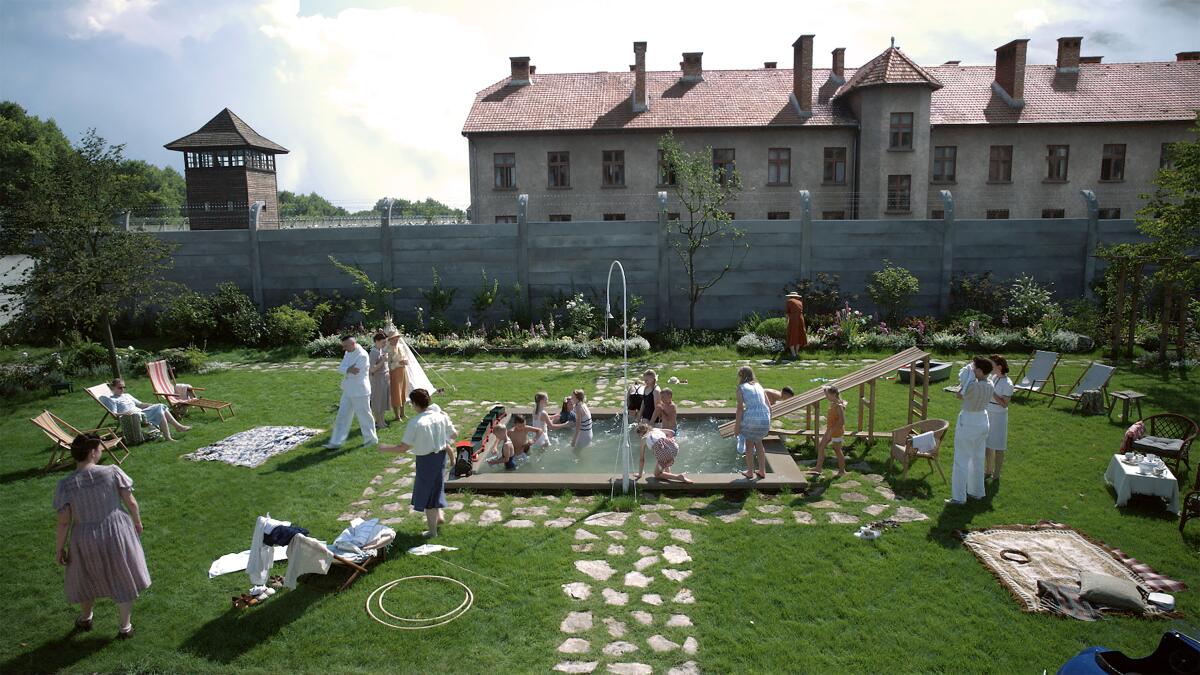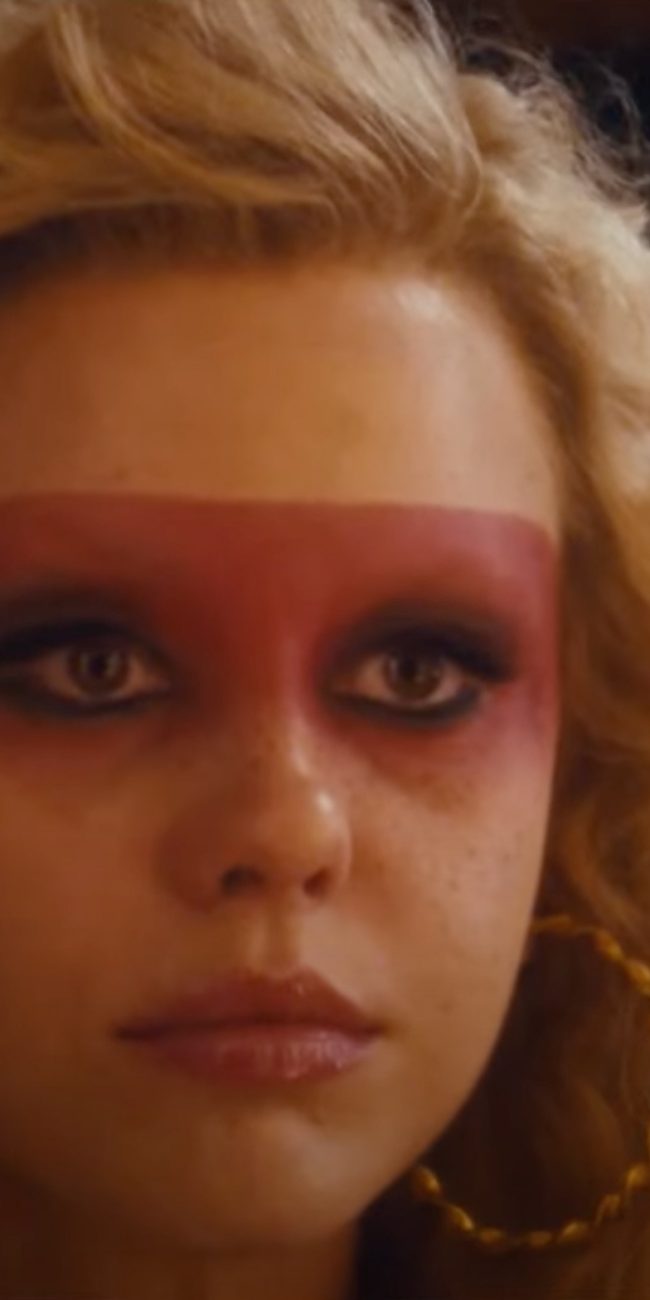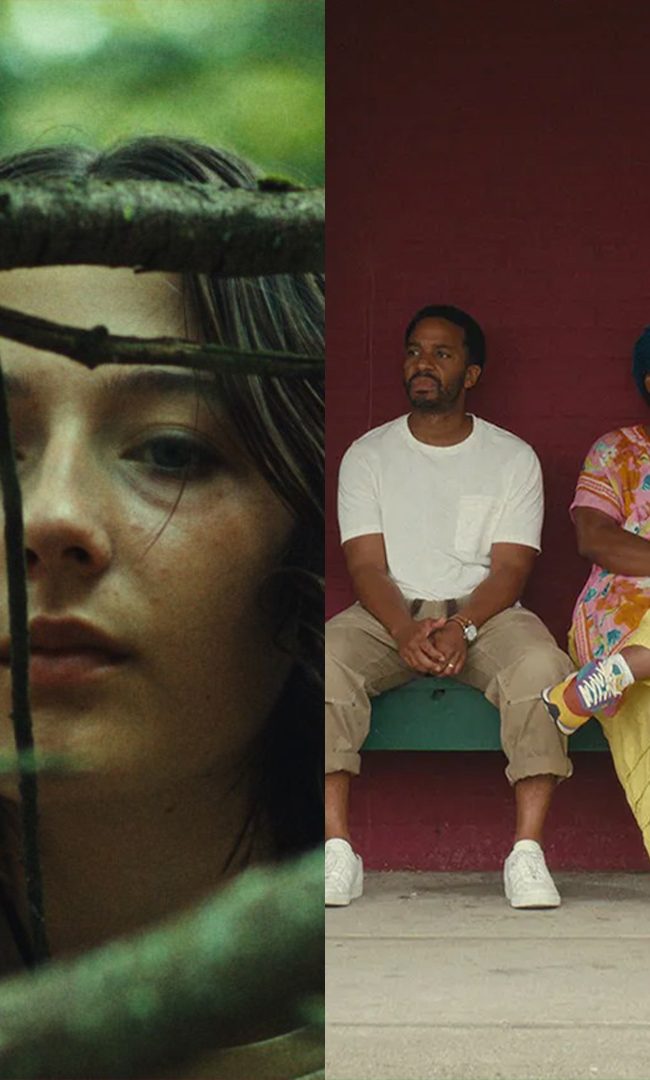THE ZONE OF INTEREST

(Check out Sammy Levine’s movie review for The Zone of Interest, in theaters now via A24. Seen it? Join the conversation with HtN on our Letterboxd Page.)
There are very few filmmakers whose work I will trek across town in the pouring rain to go see. More accurately, flash flooding. Soggy rats running through the New York subway system. Delayed trains. Damp socks. Dirt water dripping from the ceilings and collecting in puddles on the tracks near random articles of clothing and trash. Most of the time, this grossness would’ve killed my drive, but it seemed fitting for the experience I was embarking on. For many of us film heads, we waited for what felt like an eternity for Jonathan Glazer’s new film, The Zone of Interest; and finally, it had arrived.
Out of the gate, Glazer submerges us in complete and utter darkness. A black screen. Mica Levi’s ominous and skin crawling score drones and builds and builds. The horror and anxiety surrounds us, it is all consuming. It reaches its deathly sharp fever pitch, and suddenly our black bubble pops and we land in the idyllic countryside. A family by a lake at a picnic; it’s all so dreamy, beautiful and serene. Scenes of their seemingly quaint villa follow. Details of their two-story house emerge as we are introduced to their surroundings: a pool, a child’s water slide, the lush garden, a cozy dining room and kitchen. Like flies on the wall, we continue to observe them as they run through daily routines and tend to their responsibilities. All so casual, if a bit impersonal. Not a soul thinks twice; no one skips a beat. A perfect home to raise children for this young family.
As the arrow of time marches forward, the true awfulness of this family’s reality emerges; barbed wire on walls, distant shouting and screaming, columns of smoke erected in the sky. Unforgettable images populate the screen as the film strips back the layers of this family’s existential muck. The villa is attached to a tumor of pure concentrated malevolence: Camp Auschwitz. We see Commandant Höss (Christian Friedel) and his underlings discuss how to more effectively engineer the genocide, how to fit more victims into the chambers, how to do it quicker and more logistically sound. We move further into The Zone of Interest with intimate scenes in bed between Commander Hoss and his wife (Sandra Hüller) ridiculing the victims with snorting noises after robbing their corpses. Their children expel wet human ashes from their nostrils after swimming in the polluted river nearby. An old grandmother coughs hysterically as smoke from burned bodies suffocates the air. And the Hoss daughter, shot in shocking, surreal infrared, sneaks out in the middle of the night to plant apples near the camp to feed starving concentration camp victims.
The hideous nature of the film is paradoxically expressed through pristine and exacting formal execution. Glazer supported by his Polish DP, Łukasz Żal (previous work includes cinematography for Pawel Pawlikowski and Charlie Kaufman), leans into distancing wide shot lengths to render the imperviousness and callousness of the family. Furthermore, the logistical and narrative efficacy of these long and extreme long-shots economically capture the terrifyingly natural performances of Friedel and Hüller. Levi’s hypnotic and ambient score pulses and pumps a sense of dread through the intricate veins of this film. All the while Glazer’s labyrinthian script, based on the Martin Amis novel of the same name, ups the ante with new revelations the deeper we travel into the zone.
In The Zone of Interest, Auschwitz exists as a high maintenance and obsessively manicured beast. A place whose very life force feeds on the death it creates. It lives and breathes like any other character in the film. It is the monster of the film that is never fully revealed–occasionally alluded to, but always lurking in the shadows. As the Hoss family tends to their routine, its presence poisons every frame of their life. A disturbing reality of their own will. So, what exactly is The Zone of Interest? Clearly it is a reference to the concentration camp. But beyond that The Zone of Interest expresses a true and total assimilation of the nightmare. It is the study of an evil state of mind, and a grim but unique representation of humanity’s genocidal history.
– Samuel Levine (@thesammylevine)
A24; Jonathan Glazer; The Zone of Interest movie review











